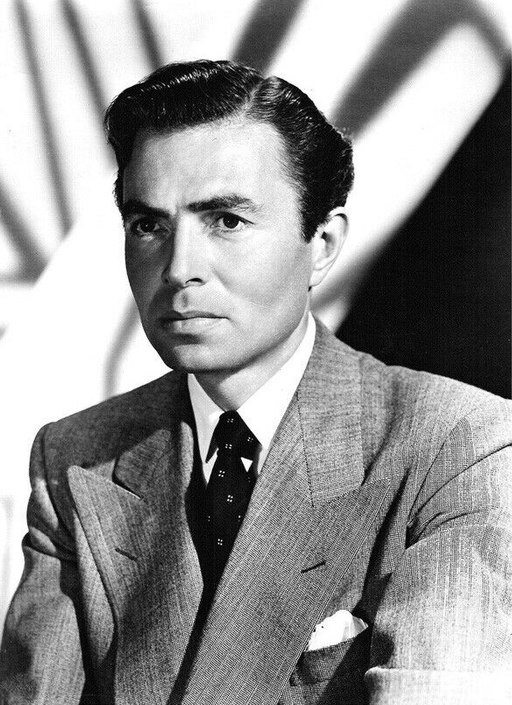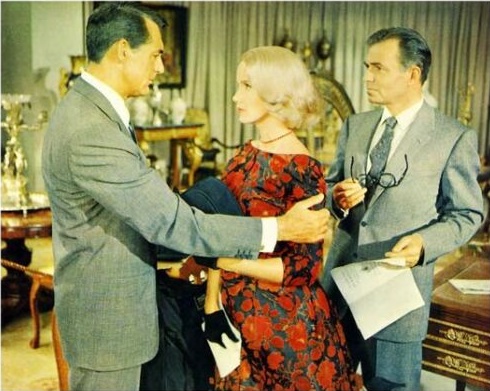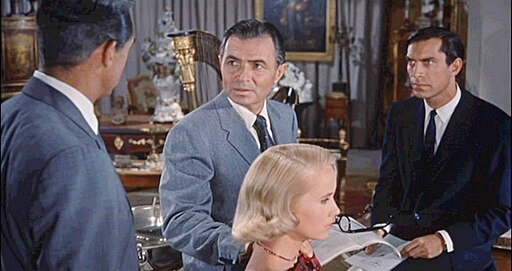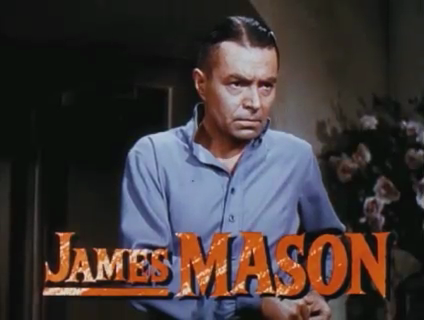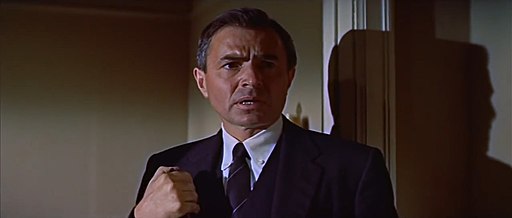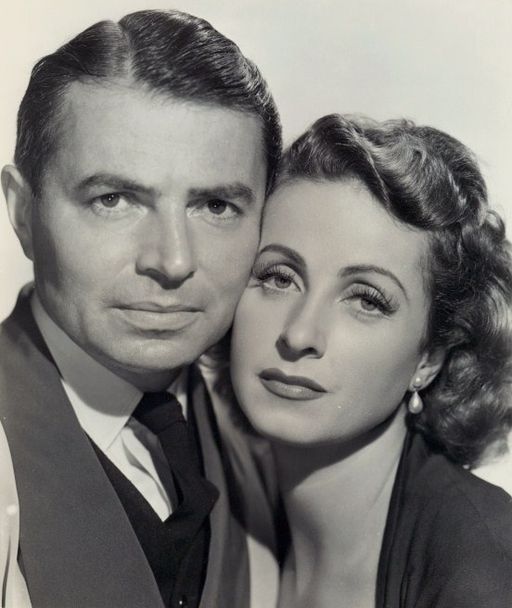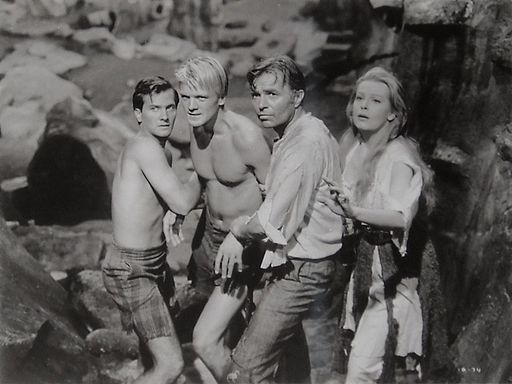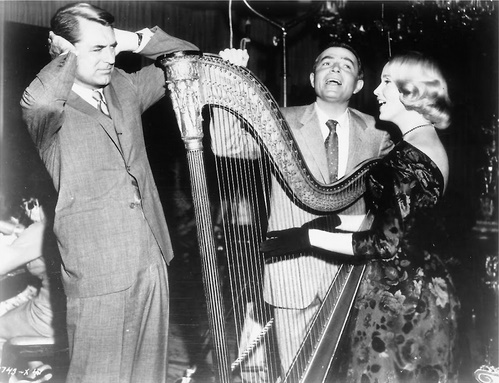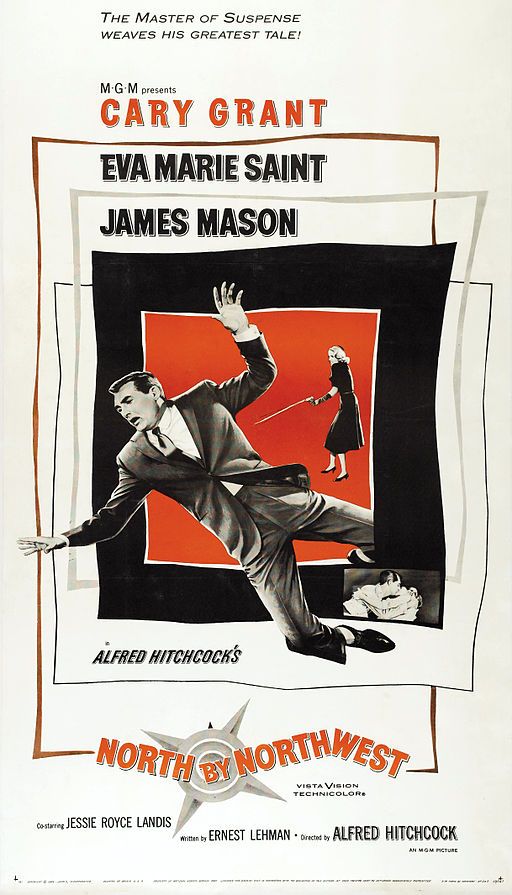James Mason
back| Full Name | James Neville Mason |
| Stage Name | James Mason |
| Born | May 15, 1909 |
| Birthplace | Huddersfield, West Riding of Yorkshire, England |
| Died | July 27, 1984 |
| Buried | Corsier-sur-Vevey Cemetery, Corsier-sur-Vevey, Vaud, Switzerland |
| Married to | Pamela Mason (née Ostrer) (1941–1964; divorced), Clarissa Kaye (1971 until his death) |
| Children | Portland Mason, Morgan Mason |
| Notable films | Odd Man Out (1947) - A Star is Born (1954) - Lolita (1962) - North by Northwest (1959) - 20,000 Leagues Under the Sea (1954) |
James Mason
The Cinematic Enigma
James Mason, born on May 15, 1909, in Huddersfield, England, was a distinguished actor known for his rich voice and magnetic screen presence. Mason initially studied architecture at Cambridge University but was drawn to acting, starting his career on the British stage and quickly transitioning to film. He rose to prominence in the UK with his brooding performances in films like "The Man in Grey" (1943) and "Odd Man Out" (1947), the latter earning him international acclaim.
Mason's Hollywood career flourished in the 1950s and 1960s with a diverse range of roles. He starred in the romantic tragedy "A Star Is Born" (1954), receiving an Academy Award nomination. His versatility was evident in films like Alfred Hitchcock's "North by Northwest" (1959), the controversial "Lolita" (1962), and the historical epic "Julius Caesar" (1953), where he played Brutus.
Equally adept at playing villains and complex protagonists, Mason's deep voice and intense enigmatic demeanor made him a memorable presence in cinema. Despite his success, he remained a private person. Mason passed away on July 27, 1984, leaving behind a legacy as one of the most respected actors of his time, celebrated for his profound impact on the film industry.
Related
James Mason
Biography and Analysis of his Movie Career
Early Life and Education
James Mason was born in Huddersfield, Yorkshire, into a wealthy family. He initially pursued architecture at Cambridge University but was drawn to acting, leading him to join theater groups and eventually abandon his architectural studies.
Acting Career
Mason's acting career began on the stage in the UK. He moved to film, first gaining prominence in British cinema during the 1940s. His deep voice and brooding screen presence made him a compelling figure in both romantic and villainous roles.
His major breakthrough came with the film "Odd Man Out" (1947), where he played an Irish revolutionary. The role established him as a leading actor.
Hollywood Success
In the 1950s, Mason transitioned to Hollywood, where he achieved further success. He starred in "A Star Is Born" (1954) alongside Judy Garland, a performance that earned him an Academy Award nomination.
Other significant films include "Lolita" (1962), where he played the complex character Humbert Humbert, and "North by Northwest" (1959), an Alfred Hitchcock classic. His role in "20,000 Leagues Under the Sea" (1954) further showcased his versatility.
Personal Life
Mason was married twice, first to Pamela Mason, with whom he had two children, and later to actress Clarissa Kaye. His first marriage ended in a highly publicized divorce.
Later Career
In the later years of his career, Mason continued to work in both film and television, often playing supporting but memorable roles. His ability to portray nuanced characters remained evident.
Death and Legacy
Mason passed away in 1984 due to a heart attack. He is remembered as one of the greatest actors of his time, known for his distinctive voice and the intensity he brought to his roles. Mason's contribution to cinema spans across various genres, and his performances continue to be celebrated for their depth and sophistication.
Analysis of James Mason’s Acting Style:
James Mason's acting style was characterized by his distinctive deep, resonant voice, understated elegance, and a unique ability to portray complex characters with depth and nuance. Here's an analysis of his style:
Subtle Intensity and Emotional Depth
Mason was known for his ability to convey intense emotions subtly. His performances were often understated, relying more on the power of suggestion than overt expressions. This subtlety made his characters more intriguing and multi-dimensional.
Commanding Presence and Distinctive Voice
His deep, velvety voice was one of his most distinctive features. It added a layer of sophistication and gravitas to his roles, making even the simplest lines resonate more profoundly.
Versatility
Mason's career spanned various genres, from romantic leads to villains, demonstrating his versatility. He could effortlessly shift from charming and suave characters to complex, morally ambiguous roles.
Complex Character Portrayals
He excelled at playing complex, often brooding characters. His portrayals often had a layer of internal conflict, bringing a sense of authenticity and depth to roles that could have otherwise been one-dimensional.
Elegance and Sophistication
Even in villainous roles, Mason brought a certain elegance and sophistication. He had the ability to make his characters likable and compelling, regardless of their moral standing.
Meticulous Preparation
Mason was known for his meticulous preparation for roles. He believed deeply in understanding the psychology of his characters, which allowed him to bring an authentic and nuanced portrayal to the screen.
In summary, James Mason's acting style combined a magnetic on-screen presence with a capacity for deep emotional expression. His distinctive voice, sophisticated demeanor, and ability to imbue characters with complexity and nuance made him one of the most memorable actors of his time.
Notable Movies featuring James Mason:
1935:
- "Late Extra": Mason's early role in a British crime film.
1942:
- "The Night Has Eyes": A thriller where Mason plays a tormented composer in a mysterious mansion.
1943:
- "The Man in Grey": A melodrama where Mason plays Lord Rohan, a cruel nobleman.
1945:
- "The Seventh Veil": Mason portrays a psychiatrist helping a troubled pianist.
1947:
- "Odd Man Out": A critically acclaimed performance as an Irish revolutionary.
1949:
- "Caught": Mason plays a manipulative millionaire.
1951:
- "Pandora and the Flying Dutchman": A romantic drama where Mason portrays the legendary Flying Dutchman.
1953:
- "Julius Caesar": Mason takes on the role of Brutus in this adaptation of Shakespeare's play.
1954:
- "A Star Is Born": Mason stars as an alcoholic actor opposite Judy Garland.
- "20,000 Leagues Under the Sea": Portrays Captain Nemo in the Disney adaptation of Jules Verne's novel.
1959:
- "North by Northwest": A Hitchcock classic where Mason plays a suave but dangerous spy.
1962:
- "Lolita": Plays Humbert Humbert in Kubrick's adaptation of Nabokov's novel.
1966:
- "Georgy Girl": A swinging-sixties comedy-drama featuring Mason in a supporting role.
1969:
- "Age of Consent": Mason plays a disillusioned artist who finds inspiration again.
1974:
- "11 Harrowhouse": A heist film with Mason in a leading role.
1978:
- "Heaven Can Wait": A fantasy-comedy where Mason plays Mr. Jordan.
1982:
- "Evil Under the Sun": A Poirot mystery with Mason as one of the suspects.
1984:
- "The Shooting Party": Mason's final film, a drama set in pre-WWI England.
Memorable Quotes from James Mason:
On Acting:
"The only way to learn how to act is by acting."
Reflecting on His Career:
"I think it's rather a good idea to accept everything and then if it's too much, well, just quietly to let it go."
On Character Roles:
"Ask me to play a good man in a film, and I might have doubts. Ask me to play a scoundrel, and I'll know I can do it well."
Regarding the Press:
"I take a grave view of the press. It is the weak slat under the bed of democracy."
On Hollywood:
"Hollywood is like an empty wastebasket."
Personal Philosophy:
"I have always felt that life is a solitary journey, that we are each on a train, riding through our hours, our days, our years. We get on alone, we leave alone, and the decisions we make as we travel on the train are our responsibility alone."
On Success and Failure:
"A failure is not always a mistake, it may simply be the best one can do under the circumstances. The real mistake is to stop trying."
On Career Choices:
"I'm a character actor: the public never knows what it’s getting by way of a Mason performance from one film to the next. I therefore have no image that is marketable."
Awards and Nominations:
Academy Awards (Oscars):
- Mason was nominated for the Academy Award for Best Actor in a Leading Role for "A Star Is Born" (1954).
- He received two nominations for Best Actor in a Supporting Role: for "Georgy Girl" (1966) and "The Verdict" (1982).
Golden Globe Awards:
- He won the Golden Globe for Best Actor – Motion Picture Drama for "A Star Is Born" (1954).
- Mason was also nominated for the Golden Globe for Best Supporting Actor for his performance in "The Verdict" (1982).
BAFTA Awards:
- Mason received several BAFTA nominations throughout his career, including for "A Star Is Born" (1954), "Lolita" (1962), and "The Pumpkin Eater" (1964).
Cannes Film Festival:
- He was awarded the Best Actor Prize at the Cannes Film Festival for his performance in "Odd Man Out" (1947).
Other Honors:
- In addition to these, Mason received various honors and accolades at international film festivals and from film critic associations.
Significance of Mason’s role in “Odd Man Out”:
ames Mason's role in "Odd Man Out" (1947) was a turning point in his career and is often considered one of his most significant performances. Directed by Carol Reed, the film features Mason as Johnny McQueen, the leader of a (not explicitly named) Irish republican organization, who becomes a fugitive in Belfast after a failed robbery. Here's why this role was so important for Mason's career:
Critical Acclaim
Mason's portrayal of Johnny McQueen earned him widespread critical acclaim. His performance was lauded for its depth and intensity, showcasing his ability to convey complex emotions and inner turmoil.
International Recognition
"Odd Man Out" was one of the first films to bring Mason international recognition. Prior to this, he had been a major star in Britain but was less known in the international cinema scene. This film marked his transition to a global audience.
Artistic Achievement
The role allowed Mason to display his range as an actor, moving away from the typical leading man roles to a more nuanced, character-driven performance. His portrayal of McQueen is a study in despair and desperation, adding layers to an already complex character.
Award and Festival Recognition
Mason's performance in "Odd Man Out" earned him the Best Actor award at the Venice Film Festival, further cementing his status as a leading actor of his time.
Impact on Future Roles
The success of "Odd Man Out" led to more diverse and challenging roles for Mason, both in British and American cinema. It established him as an actor capable of carrying a film with his performance, opening doors to a range of significant projects in the future.
All Movies featuring James Mason:
1935:
- Late Extra
1936:
- Prison Breaker
- Troubled Waters
- Blind Man's Bluff
- The Mill on the Floss
1937:
- Catch As Catch Can
- The High Command
1938:
- I Met a Murderer
1939:
- The Night Has Eyes
- The Spy in Black
- Jamaica Inn
1941:
- The Patient Vanishes
- This Man is Dangerous
1942:
- Hatter's Castle
- Thunder Rock
- The Night Has Eyes
- Secret Mission
1943:
- They Met in the Dark
- The Man in Grey
1944:
- Candlelight in Algeria
- Hotel Reserve
1945:
- A Place of One's Own
- They Were Sisters
- The Seventh Veil
1946:
- The Wicked Lady
1947:
- Odd Man Out
- The Upturned Glass
1949:
- Caught
- Madame Bovary
- East Side, West Side
1950:
- One Way Street
- Pandora and the Flying Dutchman
1951:
- The Desert Fox: The Story of Rommel
1952:
- Lady Possessed
- The Prisoner of Zenda
- Face to Face
1953:
- The Story of Three Loves
- The Man Between
- Julius Caesar
- Charade
- The Tell-Tale Heart (Short)
1954:
- A Star Is Born
- 20,000 Leagues Under the Sea
1956:
- Bigger Than Life
- Forever, Darling
1957:
- Island in the Sun
- Cry Terror!
1958:
- The Decks Ran Red
- The Man in the Grey Flannel Suit
1959:
- North by Northwest
- Journey to the Center of the Earth
1961:
- The Marriage-Go-Round
1962:
- Lolita
- Hero's Island
1963:
- The List of Adrian Messenger
- Torpedo Bay
1964:
- The Fall of the Roman Empire
1965:
- Lord Jim
- The Pumpkin Eater
- Genghis Khan
1966:
- Georgy Girl
1968:
- Duffy
- Mayerling
1969:
- Age of Consent
- The Sea Gull
1970:
- Spring and Port Wine
1971:
- Cold Sweat
- Kill!
- Bad Man's River
1972:
- Child's Play
- The Last of Sheila
1973:
- The Mackintosh Man
1974:
- 11 Harrowhouse
- The Marseille Contract
1975:
- Inside Out
- Autobiography of a Princess
- Mandingo
1976:
- The Blue Bird
- Voyage of the Damned
1977:
- Cross of Iron
- Jesus of Nazareth (TV Mini-Series)
1978:
- The Boys from Brazil
- Heaven Can Wait
- The Water Babies
1979:
- Murder by Decree
- Bloodline
- The Passage
1980:
- North Sea Hijack
- The Island
- The Last Married Couple in America
1981:
- Escape to Victory
1982:
- Evil Under the Sun
- The Verdict
1983:
- Yellowbeard
1984:
- George Washington (TV Mini-Series)
- The Shooting Party
1985:
- Doctor Fischer of Geneva (TV Movie)
- The Assisi Underground
1987:
- The Whales of August

